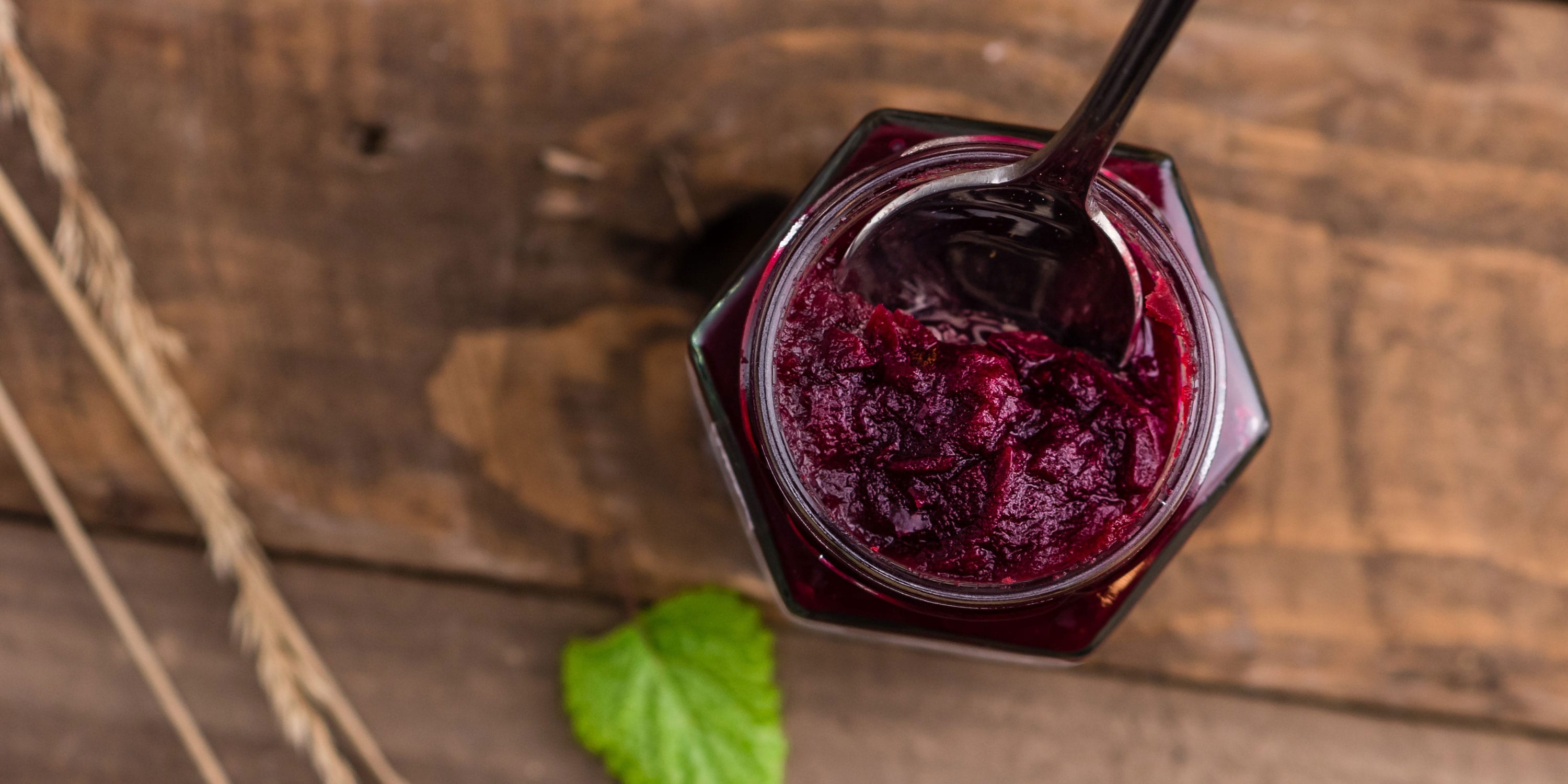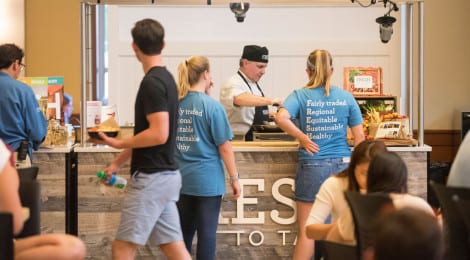
Food Vision Prize College Harvest
There are a number of factors at play when considering how to most efficiently provide students the food they want when they need it. There is the academic calendar that may not align with the harvest seasons of the most popular crops. There are student trends and desires when it comes to the food they are most likely to choose for themselves. And there is the production, processing, and storing capabilities of farmers and other suppliers that must be considered as well.
The Rhode Island School of Design (RISD) and Johnson & Wales University recognized that a coordinated effort that takes these factors into account is not readily available. Their goal is to create local products that are packaged, processed, and distributed in a way that works for the college and university sector, making it easy to adapt them into their programs. Central to the team’s project is the opportunity to use significant amounts of B-grade or surplus produce that might otherwise be composted or go to waste.
The two schools will work together and develop such products for Farm Fresh Rhode Island, a local food hub in the Ocean State since 2004. The products will specifically target large-volume institutions and will replace current purchases that do not reflect local buying habits. This effort will also include a student engagement and education component, helping to increase the knowledge of these young consumers on the importance of a strong local food system and what it takes to strengthen it.
RISD will use its creative strength to create a brand for what they are calling the “College Harvest” product line. A culinary team – lead by each school’s executive chefs – will develop the product line, estimated to start with six products. Trials will be conducted, and the two dining programs will integrate the most well-received products into their menus. The project team intends to collect feedback from student consumers for continued revision and improvement. The team even plans a local buying launch event at the Food Hub to promote the product line, provide cooking seminars, and increase community awareness of the effort.
There are a number of factors at play when considering how to most efficiently provide students the food they want when they need it. There is the academic calendar that may not align with the harvest seasons of the most popular crops. There are student trends and desires when it comes to the food they are most likely to choose for themselves. And there is the production, processing, and storing capabilities of farmers and other suppliers that must be considered as well.
The Rhode Island School of Design (RISD) and Johnson & Wales University recognized that a coordinated effort that takes these factors into account is not readily available. Their goal is to create local products that are packaged, processed, and distributed in a way that works for the college and university sector, making it easy to adapt them into their programs. Central to the team’s project is the opportunity to use significant amounts of B-grade or surplus produce that might otherwise be composted or go to waste.
The two schools will work together and develop such products for Farm Fresh Rhode Island, a local food hub in the Ocean State since 2004. The products will specifically target large-volume institutions and will replace current purchases that do not reflect local buying habits. This effort will also include a student engagement and education component, helping to increase the knowledge of these young consumers on the importance of a strong local food system and what it takes to strengthen it.
RISD will use its creative strength to create a brand for what they are calling the “College Harvest” product line. A culinary team – lead by each school’s executive chefs – will develop the product line, estimated to start with six products. Trials will be conducted, and the two dining programs will integrate the most well-received products into their menus. The project team intends to collect feedback from student consumers for continued revision and improvement. The team even plans a local buying launch event at the Food Hub to promote the product line, provide cooking seminars, and increase community awareness of the effort.


